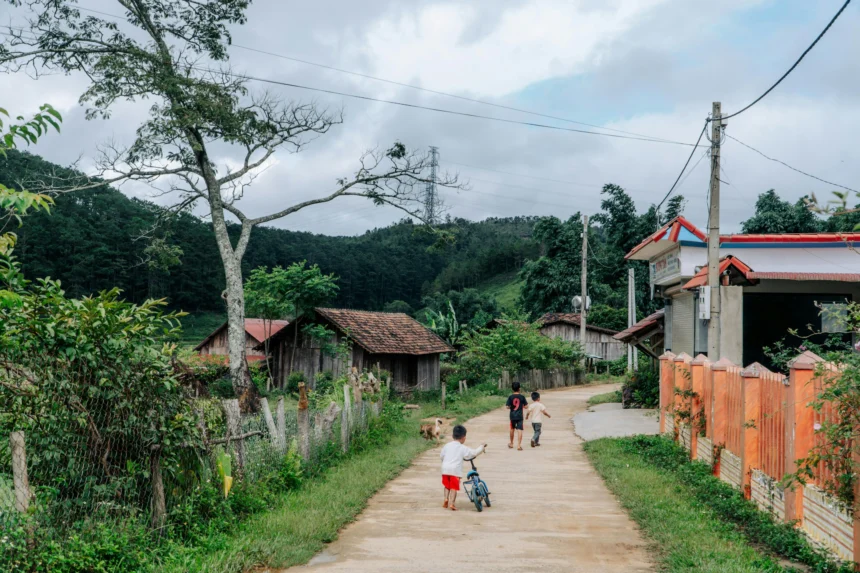Introduction
In today’s fast-moving world, many people are exploring the benefits of a more peaceful lifestyle. Rural living is growing in popularity as people look for a slower pace, stronger social ties, and closer contact with nature. This blog post explores the daily life, values, benefits, and challenges of rural living, helping readers understand what to expect and why it’s becoming a lifestyle choice for many.
What Is Rural Living?
Rural living means living in the countryside, away from cities and large towns. It includes farming areas, villages, and other small communities. Life in rural areas often revolves around nature, traditional skills, and simple routines. It is known for:
-
Smaller populations
-
Wide-open spaces
-
Stronger neighbor relationships
-
Less traffic and noise
People who choose rural living often seek more peace, better health, and personal fulfillment.
Key Benefits of Rural Living
1. Strong Community Connections
In rural areas, people usually know their neighbors well. They often work together, share resources, and support each other in times of need.
Benefits include:
-
Greater sense of belonging
-
Trust and cooperation
-
More face-to-face communication
2. Close Connection with Nature
Nature is all around in rural living areas. Fields, forests, rivers, and animals are part of daily life. People spend more time outside, which helps improve both physical and mental health.
Activities often include:
-
Walking and hiking
-
Gardening or farming
-
Birdwatching and fishing
3. Healthier Lifestyle
Living in the countryside supports a more active and natural lifestyle. There’s less pollution, cleaner air, and often more physical work.
Health benefits:
-
Less stress
-
Better sleep
-
Access to fresh food
4. Lower Cost of Living
Most rural areas are cheaper to live in compared to cities. Housing, groceries, and general expenses are usually more affordable.
| Expense Type | Urban Areas | Rural Living |
|---|---|---|
| Rent or Mortgage | High | Low |
| Food Prices | Medium/High | Low |
| Transport Costs | High | Low |
Daily Life in the Countryside
Morning Routine
Mornings in the countryside often start early. Many residents wake up with the sunrise to care for animals, work in the garden, or prepare for the day.
Typical activities:
-
Feeding livestock
-
Harvesting fruits or vegetables
-
Making breakfast with fresh ingredients
Work and Income
Jobs in rural areas include farming, teaching, local services, and small businesses. Some people also work from home using the internet.
Community and Social Life
Evenings and weekends in rural living are often filled with community events like local markets, fairs, and church gatherings. People enjoy helping each other and spending quality time together.
Challenges of Rural Living
While rural living has many benefits, it also comes with a few challenges. Being aware of these helps people prepare better for the lifestyle.
Common challenges include:
-
Limited Access to Services: Fewer hospitals, schools, and shopping centers.
-
Fewer Job Opportunities: Some career fields may not be available.
-
Transport Issues: Public transport is less frequent or unavailable.
-
Internet and Technology: Slower or limited internet in some locations.
Traditional Values and Skills in Rural Living
In rural areas, traditional values are often part of everyday life. These include:
-
Respect for elders and community
-
Sharing and cooperation
-
Skills like canning, carpentry, and animal care
These values build strong family bonds and personal independence.
Who Should Consider Rural Living?
Rural living is not for everyone. It suits people who:
-
Enjoy nature and outdoor activities
-
Prefer a quiet, simple lifestyle
-
Like working with their hands
-
Value strong communities
It may be difficult for people who need fast access to shopping, nightlife, or constant social events.
Tips for Moving to a Rural Area
If you’re thinking about rural living, here are a few steps to prepare:
-
Visit the area first and talk to locals.
-
Make sure services like internet and health care meet your needs.
-
Start with a short-term stay to test the lifestyle.
-
Learn basic skills like gardening or tool use.
Conclusion
Rural living offers a peaceful and meaningful way of life. It brings people closer to nature and builds strong community ties. Though there are some challenges like fewer services or job options, the rewards often outweigh the downsides. If you’re looking for a slower pace, cleaner environment, and stronger connections with people, rural living might be the right path for you.








Thank you for your post. I really enjoyed reading it, especially because it addressed my issue. http://www.kayswell.com It helped me a lot and I hope it will also help others.
I as well as my pals appeared to be viewing the excellent secrets and techniques located on your web site then before long I got a terrible feeling I never thanked the blog owner for those tips. My men had been as a consequence warmed to read through them and have now very much been having fun with them. Appreciate your truly being indeed considerate as well as for utilizing this form of magnificent subject areas most people are really desirous to understand about. My very own honest apologies for not expressing appreciation to sooner.
Thank you for your articles. I find them very helpful. Could you help me with something? http://www.goodartdesign.com
I抳e learn some good stuff here. Certainly value bookmarking for revisiting. I wonder how much effort you put to make such a wonderful informative website.
Magnificent beat ! I wish to apprentice while you amend your web site, how can i subscribe for a blog web site? The account helped me a acceptable deal. I had been tiny bit acquainted of this your broadcast provided bright clear idea
Thank you for providing me with these article examples. May I ask you a question? http://www.kayswell.com
Please tell me more about this. May I ask you a question? http://www.kayswell.com
How can I find out more about it? http://www.kayswell.com
Thank you for writing this post. I like the subject too. http://www.kayswell.com
Sustain the excellent work and producing in the group! http://www.ifashionstyles.com
Good web site! I truly love how it is easy on my eyes and the data are well written. http://www.ifashionstyles.com I am wondering how I could be notified whenever a new post has been made. I’ve subscribed to your RSS which must do the trick! Have a nice day!
aodege